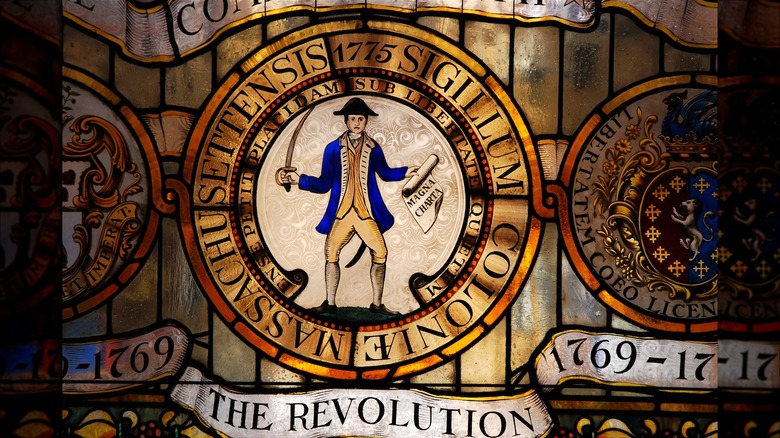The Surprising Way Boston Settled A Coffee 'Shortage' In 1777
When you think back on American history, chances are one of the first events to come to mind was the Boston Tea Party of 1773. While patriots were clearly vocal about their political feelings in their defiant act, they likely didn't know that just three years later, in 1776, they would face riot-inducing shortages of not only tea, but coffee, flour, and sugar too (via the New England Historical Society).
Over a three-year period from 1776 to 1779 during the revolution, these shortages sparked more than 30 riots targeted at fellow colonists who controlled the vast majority of the products. Some hoarded, while others simply price-gouged their customers. One such merchant and American patriot to do so was Thomas Boylston. What Boylston didn't realize is that he would be faced with a mob of women who took matters into their own hands while their husbands were away fighting for independence.
This is how they ended the coffee dispute
When the women confronted Thomas Boylston on July 24, 1777, they insisted that he lower the price of coffee to a suitable figure. The group of angry women was done with being overcharged, and they would no longer stand to go without coffee when there wasn't a physical shortage. Future first lady Abigail Adams was even there covering the riots, and she wrote to her husband, John Adams, who was away. According to the New England Historical Society, she described the group as "a number of females, some say a hundred, some say more, assembled with a cart and trucks, marched down to the warehouse, and demanded the keys, which he refused to deliver." But Boylston's refusal did little to dissuade the women.
Abigail explained that the entire situation was settled by spanking Boylston. She wrote, "One of them seized him by his neck and tossed him into the cart. Upon his finding no quarter, he delivered the keys, when they tipped up the cart and discharged him, then opened the warehouse, hoisted out the coffee themselves, put it into the trucks and drove off." To make matters even better, there were other men who watched the event unfold. Abigail wrote, "A large concourse of Men stood amazd silent Spectators of the whole transaction." Surely, no other food riot came to a close exactly like this Boston coffee shortage.

